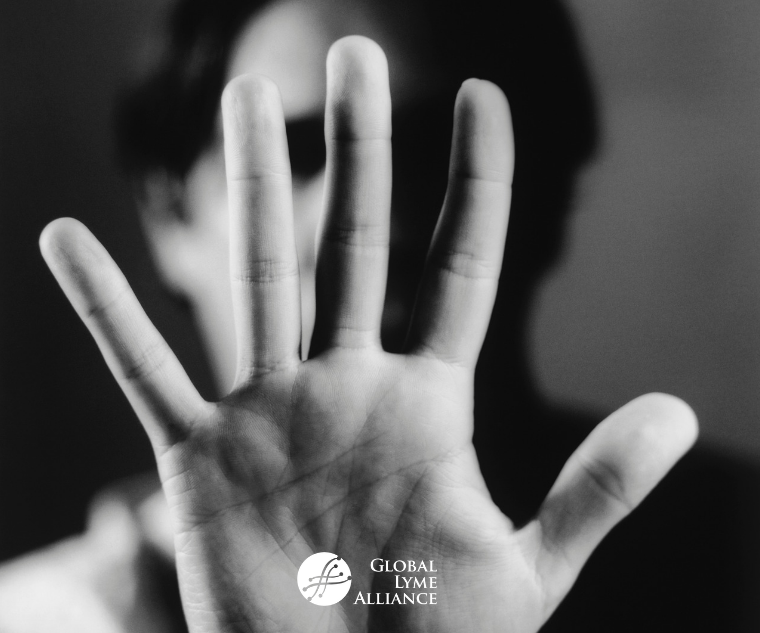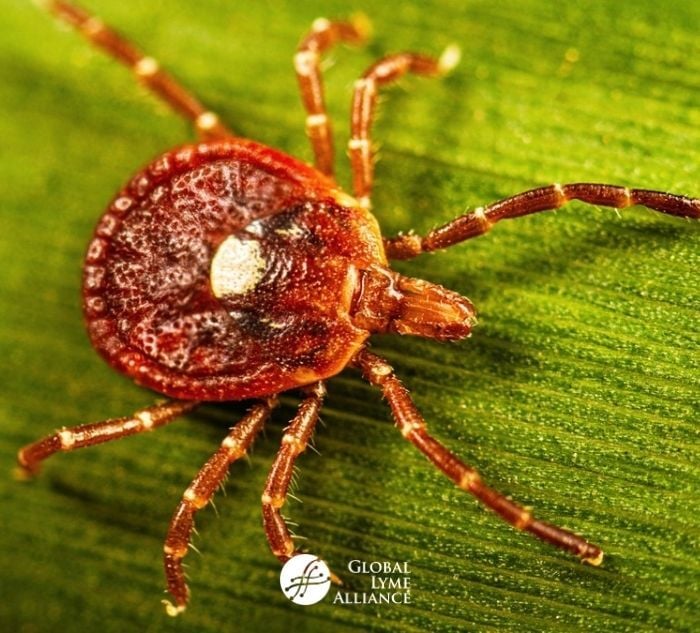
by Jennifer Crystal
In my recent post The Danger of Denial, I spoke about the consequences of denying symptoms or diagnoses when battling serious illness like tick-borne disease. For years I ignored my health issues, thinking there was strength in continuing my active, high-achieving lifestyle. In the end, my denial was an Achilles heel: the symptoms of Lyme disease and the two co-infections babesia and ehrlichia—I suffered became so bad that I was completely bedridden.
I learned my lesson. But along the way, I also learned that there are two types of denial: our own, and other people’s. When we let someone else’s denial of our medical condition affect us, the consequences can be just as serious as denying those issues ourselves.
Lyme patients face this other type of denial all the time. For me, it started before I was diagnosed. When I first experienced flu-like symptoms in college, the nurses at the health center could not figure out the origin of my fatigue, fevers, and headaches. My lab work always came back normal, so they decided my problem must be in my head. One suggested, “Maybe you should see a counselor about all this.”
At 19 years old, I was impressionable. Like my peers, I was struggling to find my place in the college community, determine my major, and decide what professional path I ultimately wanted to take. I was figuring out who I was, and doing so in a physically weakened and emotionally fraught state. This vulnerability caused me to believe the nurses. I thought the symptoms were all in my head, and therefore I worked harder than ever to deny them. I forced myself to go to class when I was sick. I double majored. I served as a leader in the student government. I studied abroad. I volunteered in the local community. I skied. I ran. I went out with my friends. I did everything I could and then some to be a “normal” college student.
And I paid for it severely.
Had I ignored the health center nurses instead of my symptoms, I could have listened to my body and pursued an appropriate diagnosis at that time. I likely would not have gotten as sick as I eventually did. Instead, it took another eight years for my body to completely crash and a Lyme Literate Medical Doctor (LLMD) to accurately trace the origin of my symptoms.
Before I found my LLMD, plenty of doctors couldn’t crack my case, and therefore denied it. When they couldn’t fit my fevers, hives, exhaustion, migraines, and hallucinogenic nightmares into a neat diagnostic box, they simply said that the symptoms must not exist.
Now, from a vantage point of strength and health, I can see these doctors’ Achilles heel: it’s hubris. They saw themselves as all-knowing. Their egos blocked them from saying, “I can’t figure out what’s wrong with you, but I’ll keep looking, or will send you to a different specialist.” Their pride, coupled with fear of admitting what they didn’t know, led them to deny my medical issues, which put my health in jeopardy.
It was up to me to push on until I found my LLMD, and to not let myself be stopped by other doctors’ shortcomings.
But even once I was accurately diagnosed and undergoing treatment, I still had to deal with other people’s denial. There were those acquaintances who said, “Oh, my friend had Lyme. They got over it in three weeks. Why are you still in bed? There must be something else wrong with you.” There were others who said, “Maybe you just need to push yourself more,” or, “Maybe you’re just depressed.”
These people were denying my very real diagnoses, thinking they knew better than my doctor. Thinking they knew better than I about what my body needed. It was hard not to be influenced by these people, but doing so would have caused me to deny my own health issues, and I wasn’t going to do that anymore.
Looking back, I try to understand where these people were coming from. For some, I think their denial stemmed from ignorance. They simply didn’t know enough about Lyme disease. For others, I think it stemmed from fear. People are afraid of chaos. They want to be able to solve it. They don’t want to admit that something is seriously wrong with someone else, because that means something could seriously be wrong with them. It’s easier to try to make things better and more manageable than they are. Even people who were Lyme literate would sometimes say to me, “Maybe your headache is from the weather,” when both they and I knew fully well it was because my Lyme was flaring up. If the headache was simply from the weather, it would be easier to deal with, so people would deny its actual origin in hopes of a simpler solution.
The reality is that Lyme patients must deal with chaos head-on every day. In order to get better, we have to acknowledge the severity of our symptoms, not deny them. We have to accept our illnesses for what they are. And perhaps most importantly, we have to guard against other people’s denial. No one knows your body better than you do. Only you and your LLMD know what’s best for you. Anyone else’s opinion should be denied.

Opinions expressed by contributors are their own.
Jennifer Crystal is a writer and educator in Boston. She has written a memoir about her journey with chronic tick borne illness, for which she is seeking representation. Contact her at:

Jennifer Crystal
Writer
Opinions expressed by contributors are their own. Jennifer Crystal is a writer and educator in Boston. Her work has appeared in local and national publications including Harvard Health Publishing and The Boston Globe. As a GLA columnist for over six years, her work on GLA.org has received mention in publications such as The New Yorker, weatherchannel.com, CQ Researcher, and ProHealth.com. Jennifer is a patient advocate who has dealt with chronic illness, including Lyme and other tick-borne infections. Her memoir, One Tick Stopped the Clock, was published by Legacy Book Press in 2024. Ten percent of proceeds from the book will go to Global Lyme Alliance. Contact her via email below.






-2.jpg)